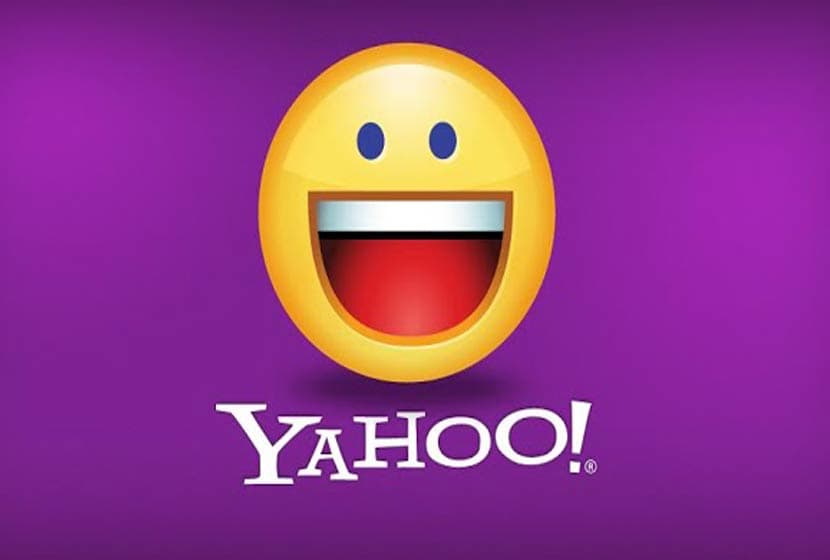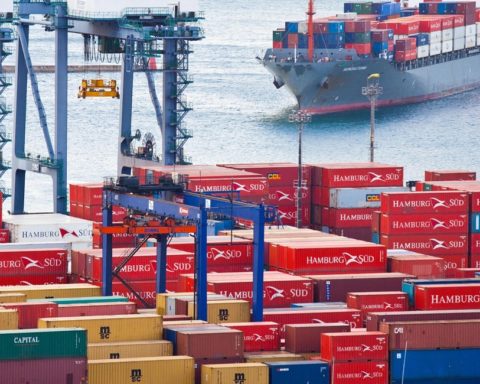After the introductionIn this second part of this series of articles on the open innovation of large groups and their relations with startups, we will take a look at the toolbox commonly used by large groups.
I review the incubators, accelerators, labs abroad, technological support, startup competitions and conferences.
In a following article, we will end this toolbox journey with financing, collaborative projects, proof of concepts, co-marketing, white label sales and acquisitions. Then, above all, with the elements of the large group's corporate culture that will favour the implementation of an effective open innovation approach.
Incubators and accelerators
In view of the plethora of incubators and accelerators in France, one of the big company's Pavlovian reflexes is to want its own, to have "its" startups at home. This can be interesting for the startup looking for cheap accommodation and infrastructure, but it is normally attracted by something else: support and the prospect of having this large company as its first customer reference.
Accelerators differ from incubators by having a shorter length of stay (4 to 6 months in general) and more intense support than in incubators. This support is provided by a team of permanent staff, an entrepreneur in residence, and the use of external skills (entrepreneurs, horizontal or vertical business experts, investors). The end of the acceleration programme often involves pitches from startups to investors, sometimes even abroad, as Le Camping has been doing for several years.
Large companies have a wide variety of approaches in this field :
Microsoft launched its Rue du Sentier accelerator two years ago now and hosts a dozen startups there, renewed twice a year. Here, the logic is above all that of developing an ecosystem. The publisher is seeking to attract startups to its platforms, primarily Azure and Windows Phone. But there is the embarrassment of the choice of platforms with Windows 8/10 and the XBOX. Respecting the state of the art, the accelerator calls on many entrepreneurs to accompany the startups.
Crédit Agricole has created "Le village", a nursery for startups on rue la Boétie in Paris. As of 15 October 2014, up to 100 startups will share the building's 4,600 sq.m. of space. High standing m2 with conference room, showroom and representative offices. Crédit Agricole has partners in the operation with service providers (Bearing Point, BETC, Niji) and some manufacturers (HP, Microsoft, Philips, NEC, GDF Suez). The startups welcomed are in a variety of fields (social and solidarity economy, media, financing, ecommerce, energy, health, etc.). This is the Spanish hostel! But the hostel has charm and allows encounters. Innovation also comes from chance encounters of actors from complementary sectors. However, we are far from a logic of ecosystem and platform.
In 2012, Renault launched a different approach in the form of a public-private partnership with the City of Paris and the Paris Region Lab. Their incubator is physically located in the City of Paris' Masséna incubator in Paris in the 13th arrondissement. The funding is provided by the PIA (Paris Innovation Amorçage) programme, a joint venture with Bpifrance (launched at the time of Oséo). Renault provides "support". It's light in appearance. In any case, the industrialist focuses on what he knows how to do or must know how to do, not on accommodation.
M6, UGC, Warner and some other Neuilly companies use the Neuilly New Media formula. It is a distributed incubator: the startups selected by NeuillyLab are hosted and accompanied in the fifteen or so Neuilly companies that are part of the program. It's tailor-made incubation, on a case-by-case basis. The community aspect and the meetings between startups are preserved because Neuilly Lab still has common premises to accommodate them (offices, meeting space).
Orange and Canal+ are developing startup acceleration packages (Orange Fab and CanalStart), but without hosting. This consists of project support and putting them in touch with the company's teams to carry out joint projects. It's a logic of innovation sourcing rather than an ecosystem.
Some contribute to the financing of accelerators, as is the case at the NUMA campsite in Paris, which was financed by Google, Orange, La Poste, BNP-Paribas and SNCF to name but a few examples. Suspicious habits that will often be found in the continuation of these open innovation practices. Google has moreover set up its own space at the NUMA, which hosts Le Camping with an "Android Devices Lab" and a video studio accessible by NUMA startups. It is a clever approach that allows, with a lower investment, to be present where a large number of startups are circulating.
In any case, these accelerators and other incubators, like the others, share a rather rare commodity: experts and mentors who are used to coaching startups. Some have even made a full-time job of it. They must know how to transfer know-how and interpersonal skills, but without imposing their views. The best mentoring remains that which comes from young entrepreneurs who are still in business and/or have become business angels. Good approaches therefore consist of combining mentoring from the managers of the large group and external stakeholders. The former will allow the startups to navigate the mysteries of the organization and the constraints of the large group. The latter will provide more appropriate entrepreneurial assistance, especially when the startup's project may upset the established order, an order that large groups tend to seek to preserve.
At the end of the acceleration or even incubation programs, it is customary to organize "demo days", where the startups accompanied will pitch their projects in front of the ecosystem and especially investors. Inspired by American methods popularized by TechStars and other accelerators as well as Techcrunch Disrupt or Demo type events, they attract regulars among the latter who observe the evolution of projects that they have sometimes already detected upstream. These "demo days" are now quite numerous and everywhere in France. Sometimes, the organizers attract VIPs who give them prestige. A current example is the case of Microsoft, which will have both Axelle Lemaire (Secretary of State for Digital) and Satya Nadella, the CEO of Microsoft, at the demo day on 13 November 2014 in Paris. All right if that doesn't make the exercise more intimidating or too institutional!
The other key point for large companies is "sourcing". Where to find the right projects? How to attract startups? This is based on both marketing and field operations that will be exposed a little further on (contests, conferences). But also on a fairly close networking of the large group with the "ecosystem" of startups. The main key point is to get in touch with the upstream, i.e. as a priority, higher education incubators and seed funding structures. To do this well, you need to invest not only money but also time and skills.
This is why I often come across representatives of major groups (Bouygues Télécom, Oracle, HP) on the selection committees of Scientipôle Initiative, which grants honorary loans to the founders of startups, the first step before Bpifrance financing and the call for business angels. Their representatives should not give the impression that they are going "fishing for startups" but should also bring added value to the discussions.
Lesson from history: we can do without incubators and accelerators from large groups, there are enough of them in nature! Startups need projects and customers above all. Large groups, start by being good customers! But don't call it acceleration! Another avenue to explore: sponsoring fablabs. This area is not yet saturated and many manufacturers would have their place there!
Labs abroad
This is a recipe that is becoming increasingly common among the largest companies: setting up one or more labs in the main innovation clusters abroad. Telecoms operators have been at the forefront in this area, led by Orange. In San Francisco alone, the latter has a lab and a startup accelerator with more than 50 permanent employees. They are also present in China, Japan, South Korea and the United Kingdom. Bouygues Telecom also has representatives in the USA and Japan, but less infrastructure on site. The most "low-cost" model (even if it doesn't like this term) is the method of Kima Ventures, Xavier Niel's seed fund. Jeremie Berrebi and his team work mainly via Skype to meet and qualify the funded startups.
In the international arena, BNP-Paribas stands out with L'Atelier, created in 1978 by the illustrious Jean-Michel Billaut. It is a technology watch observatory based in Paris and also in San Francisco and Shanghai. A bit like the Oranges Labs in San Francisco, the San Francisco branch values local trends more than French startups looking to set up shop in the USA. All the more so since, as far as L'Atelier is concerned, the clients are mainly the major CAC40 groups who come here to do their technology watch. L'Atelier in San Francisco, along with Orange Labs, is one of the places where we regularly cross paths with French people from Silicon Valley.
In 2013, Axa also set up a Lab in San Francisco with three employees. At the head of Axa's marketing and distribution is Frédéric Tardy, former head of the San Francisco workshop. More ideas!
These labs abroad are in fact more about technology watch than open innovation. The key point is to feel a little ahead of the game when it comes to major trends and weak signals. The aim is to enable large companies to adapt more quickly to the changes in a market that is regularly changing. There was a time when, for example, the CEOs of telecom operators spent their time in Japan during the golden period of the mobile and iMode launch. Now it's Silicon Valley, Korea, and China.
By being very close to these ecosystems of innovation, large companies often actually lose track of time. They take for granted the doxa of Silicon Valley (or elsewhere, depending): like, with 3D printing, it's the end of factories and relocations, transhumanism is for now and humanoid robots will take care of the elderly. All things that are neither true nor false, but for which we must appreciate the time dimension. While the science fiction of the near future makes us dream, it is much more prosaic revolutions that are revolutionizing economies, such as social networks, mobile applications or the collaborative economy.
Another country that rightly fascinates the major groups, especially in the media and telecoms: Israel. Many study trips are organized to meet universities, incubators and startups there and capture, as in Silicon Valley, the spirit of innovation that reigns there. The secret dream? To transpose this spirit of "we can do it" to France. It is no longer really a question of technological watch but rather of societal and managerial watch. Being inspired by Israel has a price that we are not always ready to pay in France: speaking and thinking in English, having our eyes glued to the USA (with Europe lagging far behind), seeing very big right away, being very aggressive in business. It's in a way the opposition of a "bobo franchouillarde" culture and an entrepreneurial culture acquired in the ranks of the Tsahal and a three-year military service.
Other countries are often neglected and therefore very interesting in their adoption of new uses. Africa is at the forefront in mobile banking, India in crowdfunding, etc.
Lesson from history: this fascination for these innovative countries has a perverse effect: by dint of looking for greener grass elsewhere, large groups can neglect the same innovations from French startups. With an infernal loop: French key accounts may be reluctant to work with a French startup for fear that it will not develop as quickly as its foreign competitors. By choosing the latter, the big company then fulfils a self-fulfilling prophecy! She explains why it is sometimes more interesting to go international very quickly than to strive in the narrow domestic market, even if local "wins" are always welcome. This is especially true for "b-to-b" solutions. Best practices with regard to startups? When large groups take advantage of French startups to help them set up abroad. Examples are rare, so much so that I don't have a single one in mind.
Read more : ©Blog Opinions libres - November 5, 2014












